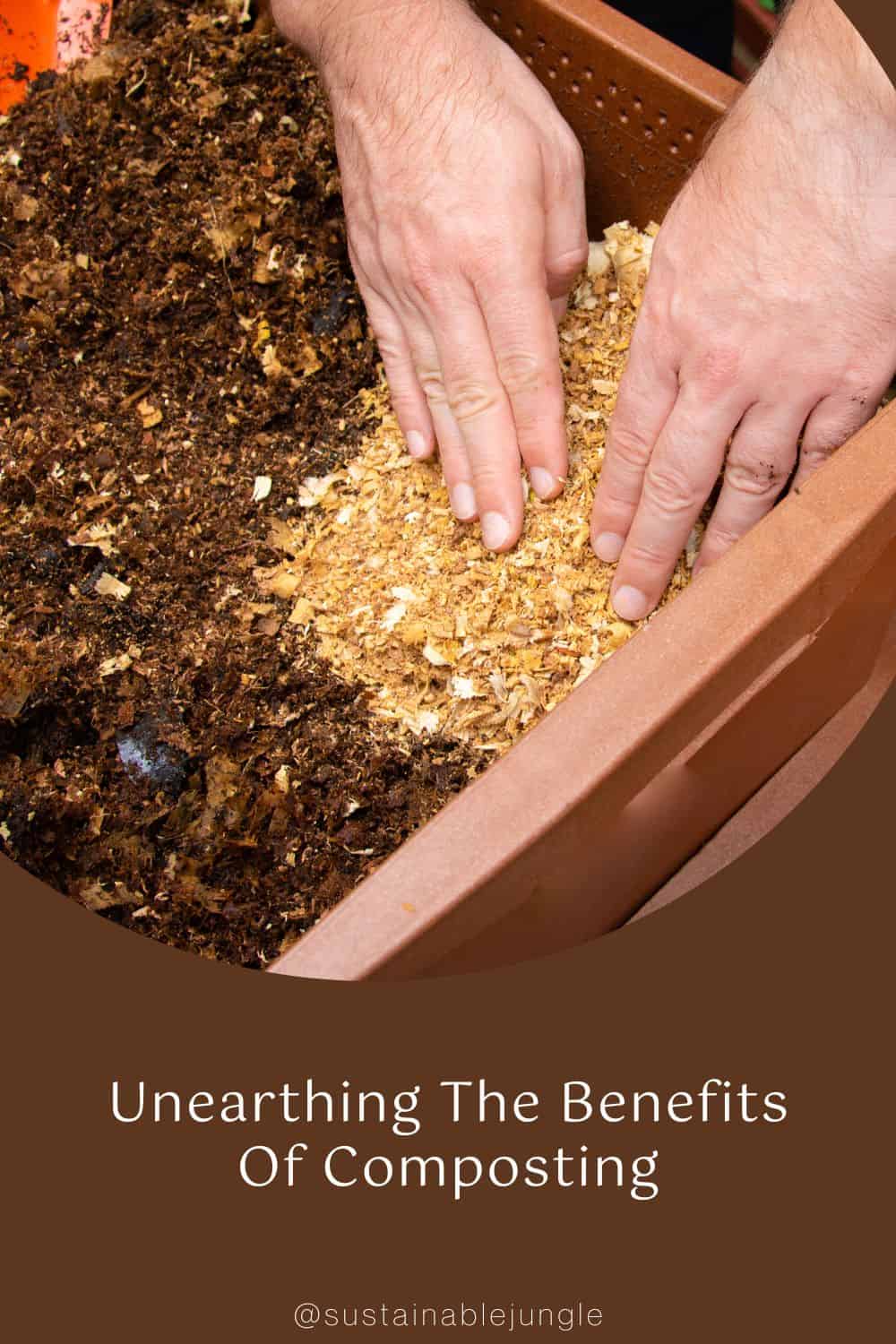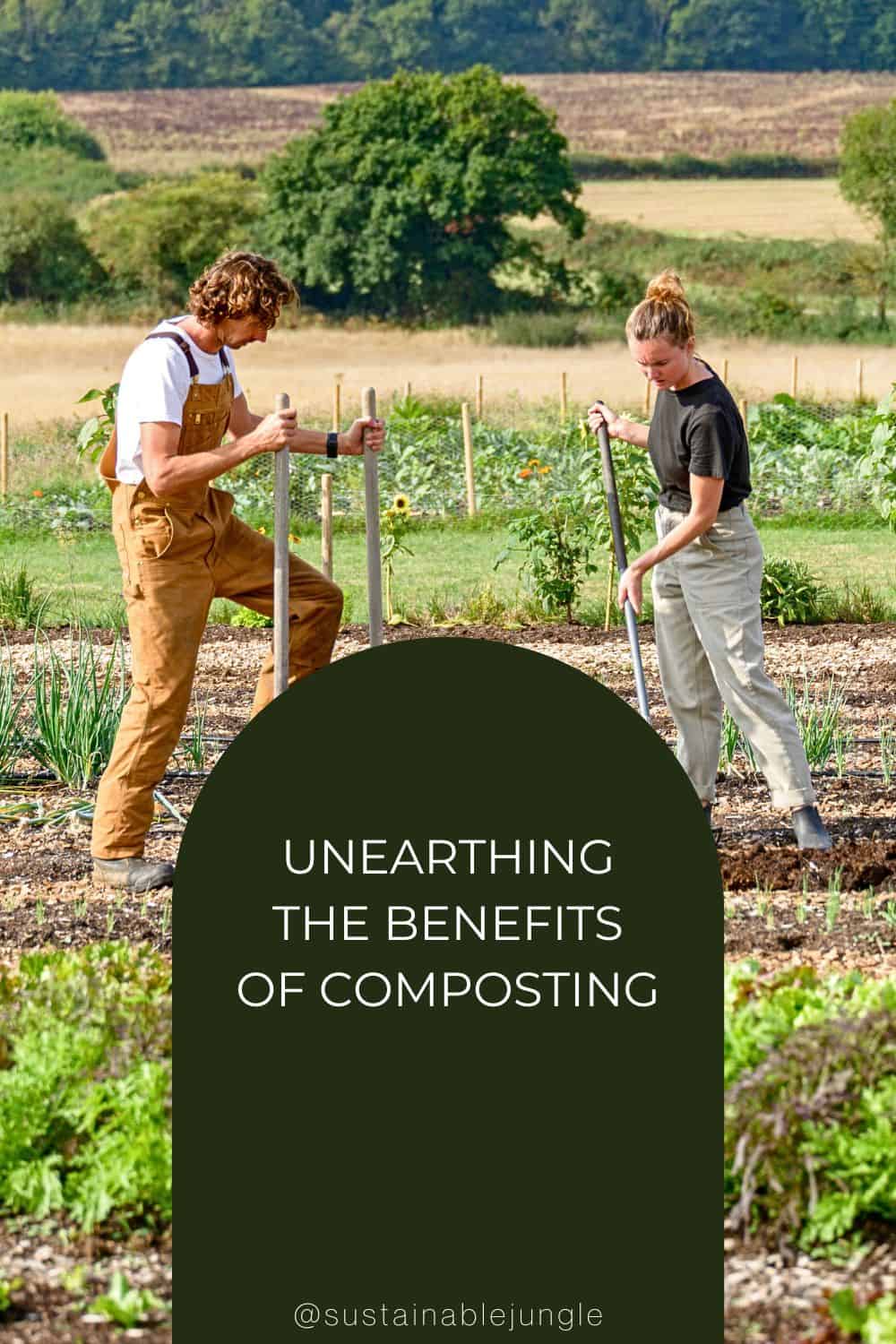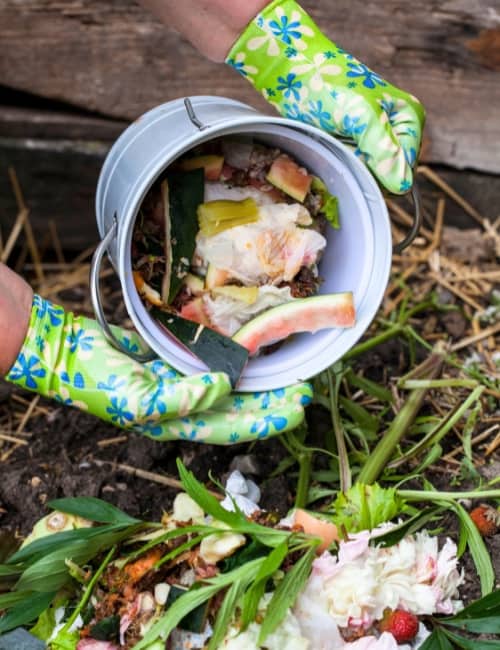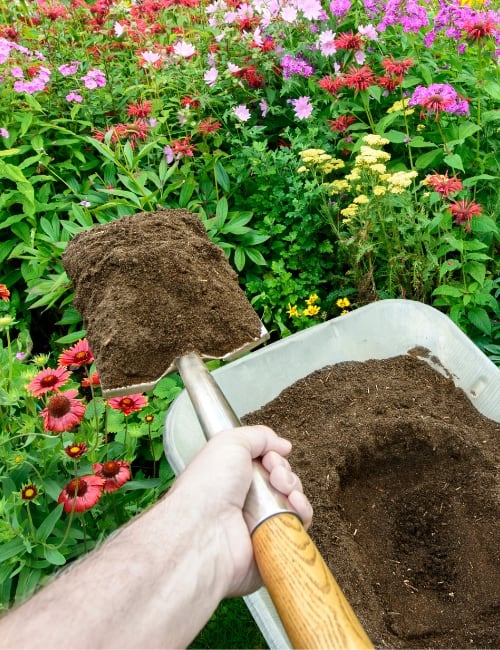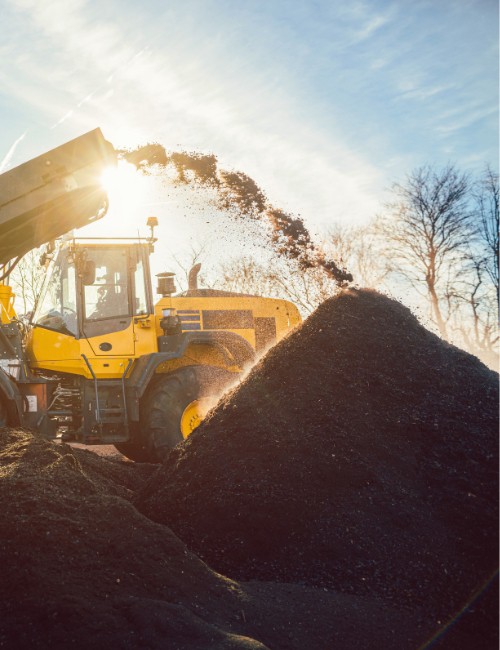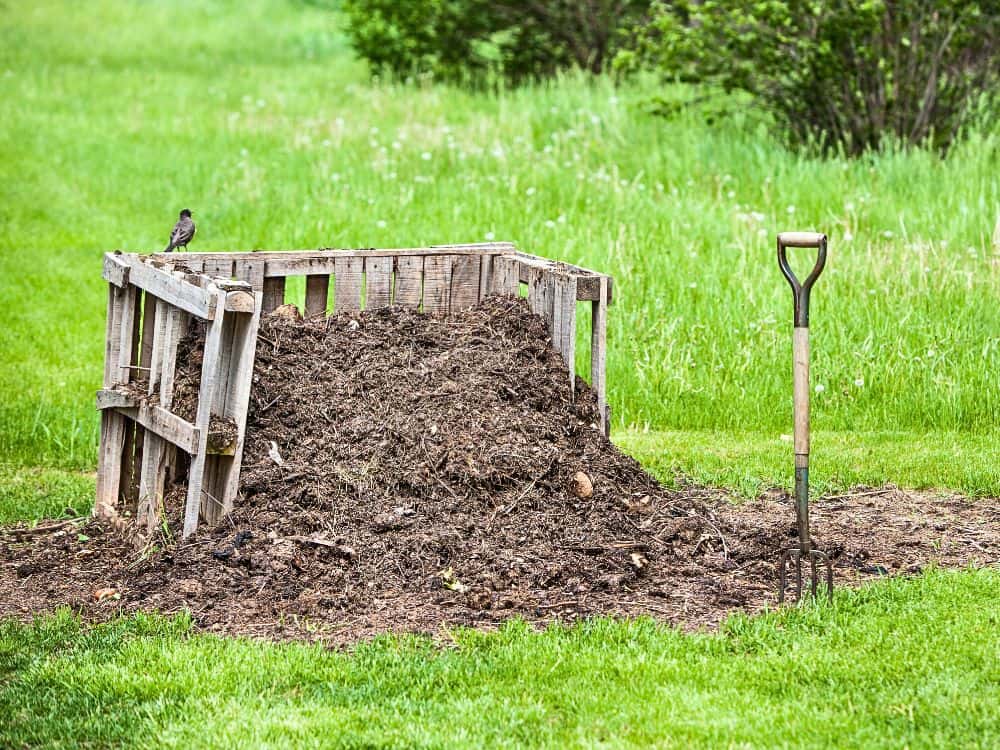
Unearthing The Benefits Of Composting
Ssh, don’t tell anyone, but there’s something quite wonderful happening down there in the backyard.
And it’s happening all by itself (almost). We’re talking about composting, a hotter-than-your-hot-bin topic and one of our favorites here on SJ.
It’s time we let the cat out of the (compost) bag about the uses of compost in creating healthy soil, healthy plants, and a healthy planet.
So, what are the benefits of composting?
Let’s dig in.
1. Composting: Breaking It Down
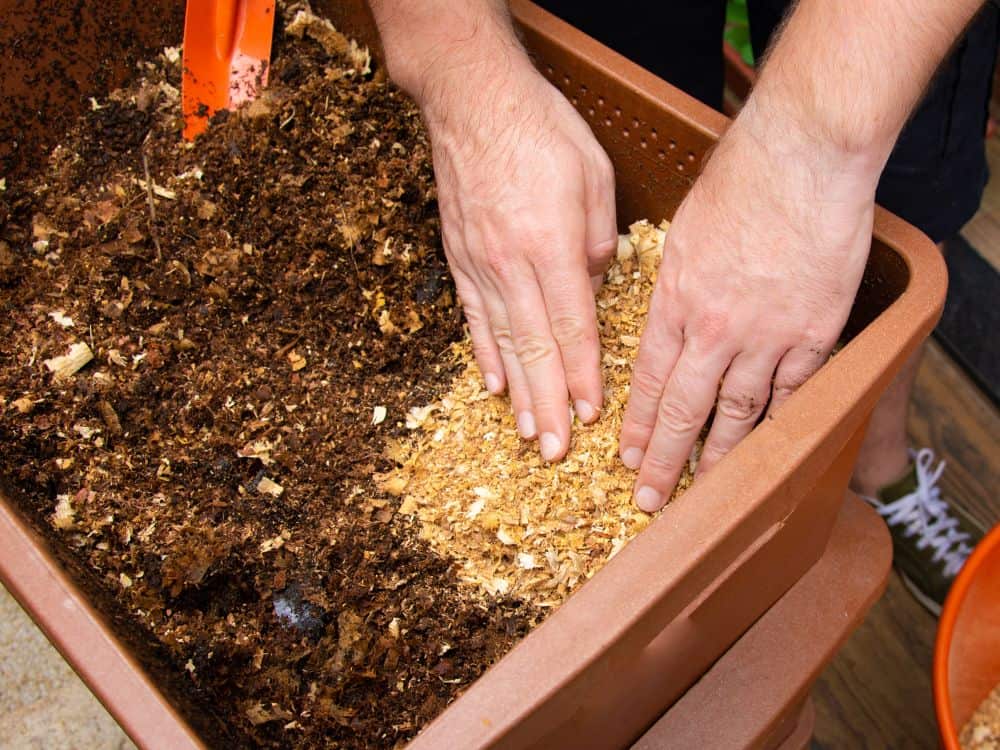
The benefits of composting for the environment are enormous, but before we dive into them, let’s take a quick refresher on what composting is.
Composting is the process of biodegradation, or breaking down, and repurposing of organic waste. In other words, it’s nature’s way of recycling natural matter.
The process works like this: microorganisms, worms, snails, insects, and fungi break down organic waste and turn it into a useful material that gets fed back into the earth.
It’s like the circle of life (watch here for a ~1-minute lesson refresh from The Lion King).
For a compost bin/pile to be successfully turned into this useful material, it needs three basic “ingredients”:
- Browns: This consists of dead plant matter (i.e. leaves) and wood-based waste (i.e., twigs, paper, cardboard). These are carbon-rich materials.
- Greens: This consists of live plant material (grass trimmings, vegetable waste, fruit cores, coffee grounds, egg shells, and other kitchen scraps). These are nitrogen-rich materials.
- Water: Most organic materials will generate their own moisture as they break down, but sometimes, a little water must be added to achieve the desired damp sponge consistency, especially in hot climates.
It can help to imagine a forest floor where you need a range of inputs or ingredients to make the ground fertile (with heaps of nutrients and minerals) for trees and plants to grow from.
So why is composting important?
2. Less Waste To Landfill
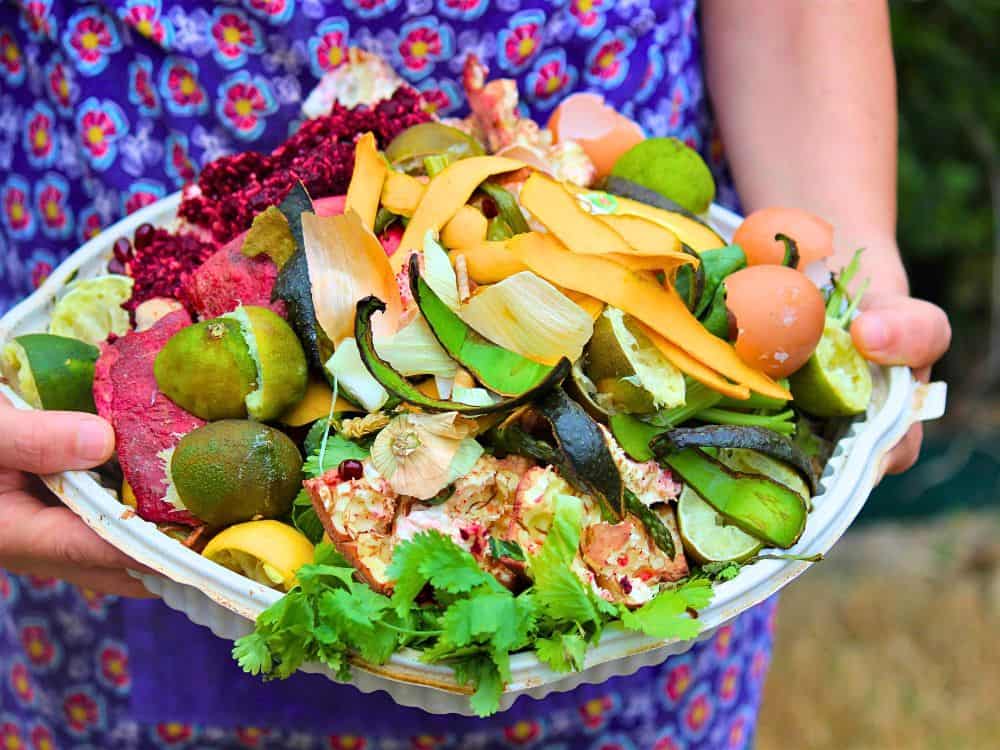
One of the biggest pros of composting is creating an environmentally friendly alternative to landfill disposal.
Globally, humans produce around a staggering 2.01 billion tons of solid waste each year (set to increase to 3.40 billion tons by 2050).
Most of it ends up in landfill or open dumps, despite over 60% being “organic”, or “waste of biological origin”.
Here, “organic” means anything that is biodegradable and comes from a living organism (as opposed to organically farmed products). It includes paper, cardboard, food scraps, garden trimmings, and fecal matter (i.e. dog poop).
EPA figures on Municipal Solid Waste (MSW) reveal that U.S. national waste consists of 23.05% paper products, 6.19% wood, 12.11% yard trimmings, and 21.59% food scraps.
Added together, that’s 62.94% of total waste that could be used for composting. Imagine reducing landfill waste by over 60%!
It’s not only better for the environment; it makes financial sense, too—queue the economic benefits of composting.
Compost has tremendous economical AND ecological value, so sending it to become part of the microplastic-ridden toxic sludge of landfills is really a waste of a “waste”.
Landfills are a financial drain on cities and, consequently, on taxpayers too. The fact that large sums are spent on sending all the ingredients for making a valuable resource to landfill is, well, pretty nonsensical.
It’s estimated the US could save $16 billion in waste management costs by the end of 2030 through expanding composting operations.
3. Fewer GHG Emissions
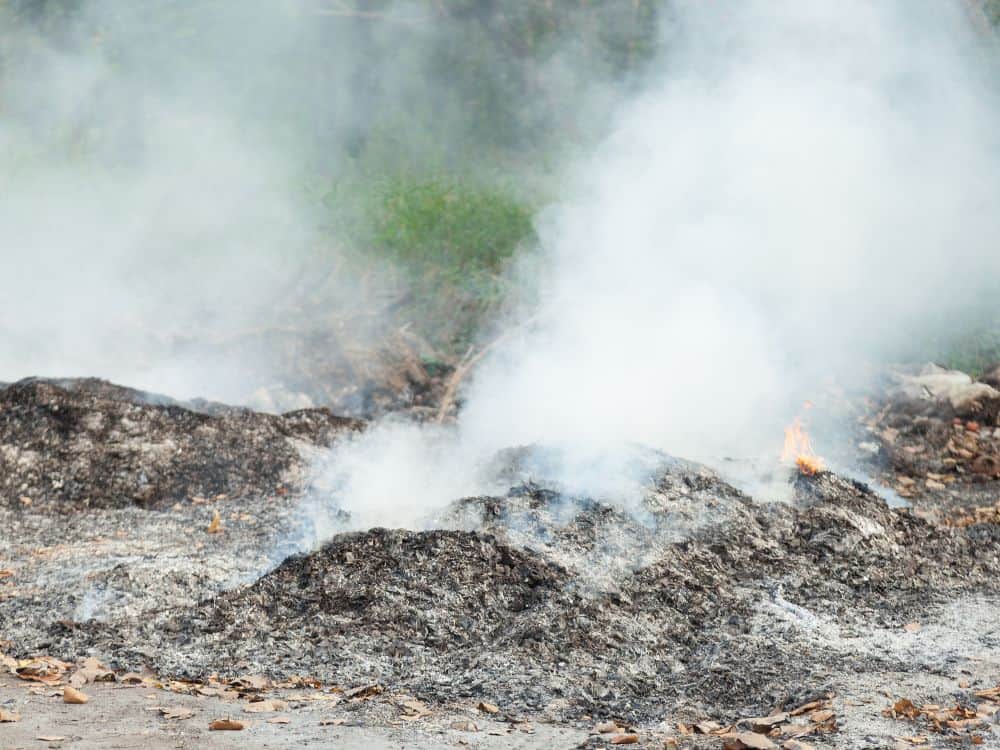
You still might be asking, “Okay, but aren’t landfills just giant compost piles?”
What’s the big deal with organic matter going to landfill?
Unfortunately, in a landfill the mixture of organic and non-organic material ruins the composting process and releases methane gas—a greenhouse gas 28 times more potent than carbon dioxide.
By sending organic waste to landfill, not only are we losing a valuable resource, but we’re creating potent GHG emissions in the process.
In addition to the methane generated in landfill, consider all the CO2 emissions produced at different levels of the food supply chain (from farm to fork), and it’s easy to see why the link between food waste and climate change is important.
If all food waste was eliminated, it’s estimated that we’d cut global GHG emissions by 8%.
While we need to find ways to reduce the amount of food waste created in the first place, composting food waste benefits the environment by curbing methane gas emissions and storing carbon.
4. Storing Carbon
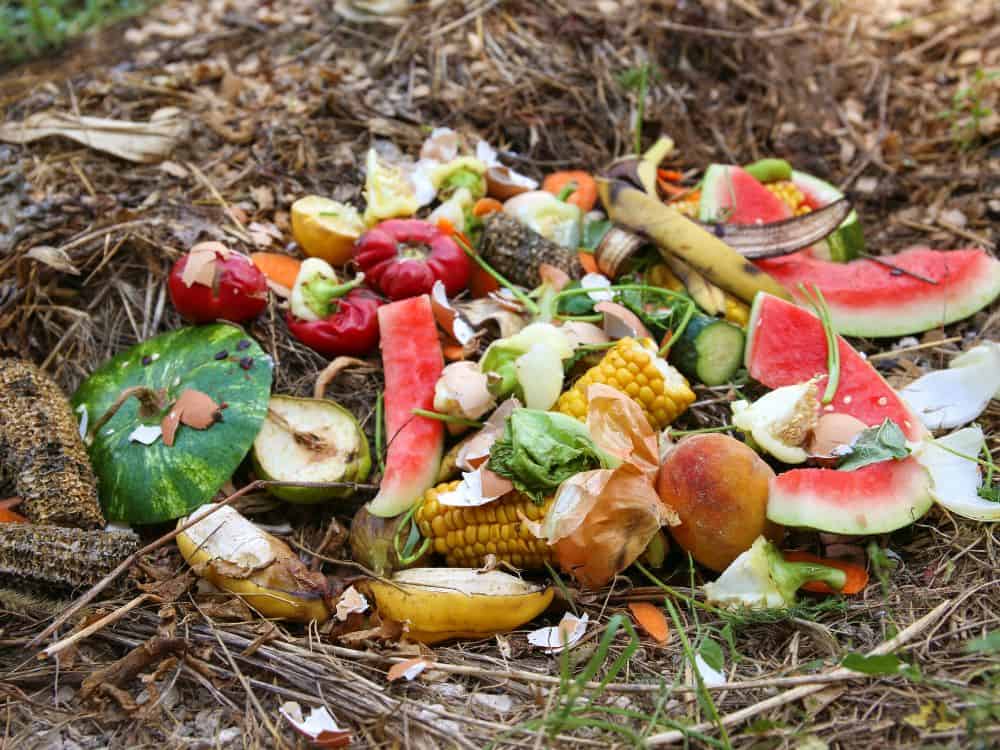
When we compost organic waste and add it to the soil, we store carbon.
This is one of the most significant environmental benefits of composting.
Composting improves the overall carbon cycle of the earth by sequestering carbon (even so far as to become a carbon sink if utilized on a larger agricultural scale) and managing overall atmospheric CO2 concentrations.
In other words, composting organic waste has a vital role to play in mitigating climate change and is a crucial component of regenerative agriculture.
If global composting rates improved, we could cut emissions by a whopping 2.1 billion tons by 2050.
Composting is also one of the best ways to reduce your carbon footprint at home.
Even if you have a curbside collection for commercial composting, composting at home avoids the CO2 emissions of transporting and handling organic waste.
Of course, one of the most appealing benefits of home composting is that you’re rewarded with excellent fertilizer for growing your veggies!
5. Healthy Soil & Healthy Farms
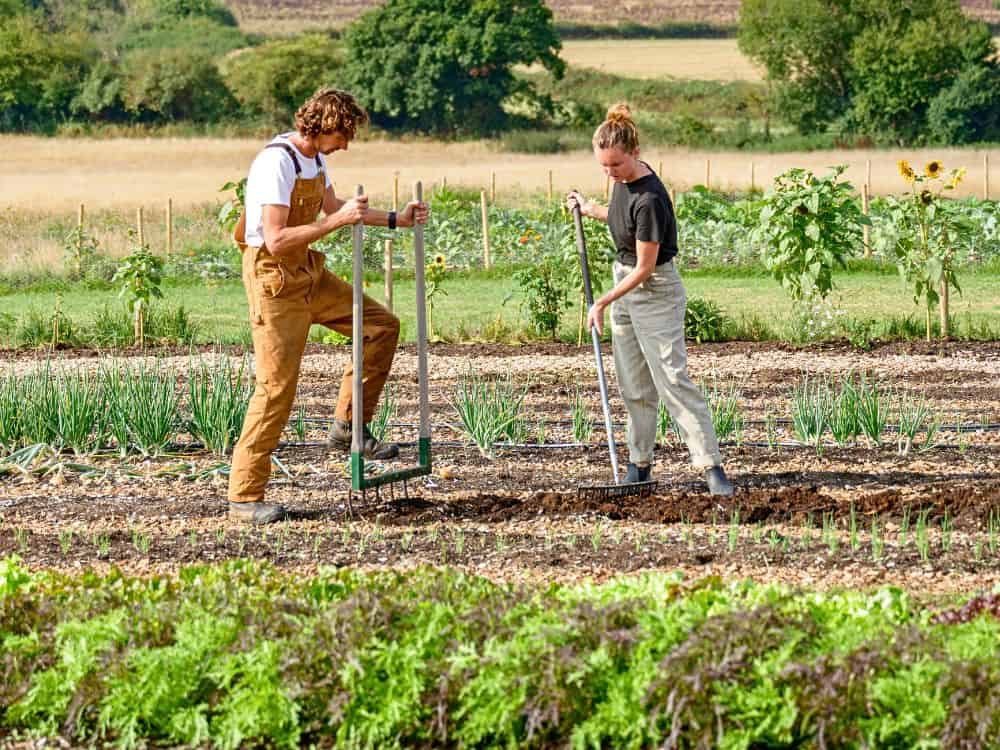
Composting not only keeps waste out of landfills, but it re-purposes it into material that improves soil health—another huge reason why composting is important.
Exactly what are the benefits of composting for soil health?
Soil Fertility & pH
When mature (i.e, well-rotted), compost becomes a nutrient-rich material called “humus.”
This can amend depleted soil by replenishing it with carbon and essential plant growth nutrients like phosphorus, potassium, and nitrogen.
It can also help balance soil pH levels, making it more hospitable to a wider variety of plants.
So, one of the best advantages of composting for the gardener is that you’re creating your own natural fertilizer for free, using organic waste that would otherwise be destined for landfill (unless you have a curbside collection scheme).
It’s an essential practice for sustainable gardening.
If you do need to buy compost (while waiting for yours to be ready), make sure it’s from a peat-free compost brand. Peat bogs are crucial as carbon sinks and natural habitats for wildlife, so we mustn’t damage them further.
On a farm scale, using compost as a natural fertilizer means less reliance on chemical inputs (and the negative impact these have on the environment) as well as efficient recycling of organic waste.
Soil Biology
No more pesticides!
Compost is rich in bacteria and fungi that enhance soil microbiology and create healthy soil for plants to grow in.
Healthy soil = healthy plants that are more resistant to pests and diseases.
So, providing plants with the proper nutrition and soil structure via compost can help with garden pest management—another one of the many reasons to compost!
On top of that, spreading a thick layer of compost on top of garden beds can help prevent weed growth and is an important part of the “no-dig” or “no till” gardening method.
We can avoid the weed-killers, too.
Soil Structure
Compost benefits the structure of existing soil (think back to that forest floor analogy).
It can help prevent soil erosion—another major reason why composting is good for the environment.
For farmers and growers, it improves the workability of tricky soil types, adding water retention to fast-draining sandy soils, friability to heavy, compacted soil, and drainage to clay-based soils.
This makes it useful for reforestation and environmental restoration and areas affected by drought.
Compost can also help regulate soil temperature (extending the growing season) and increase moisture retention to save time and money on watering.
On a broader agricultural scale, all these composting benefits help promote higher crop yields.
But wait, there’s more!
6. Cleaning Up Contamination
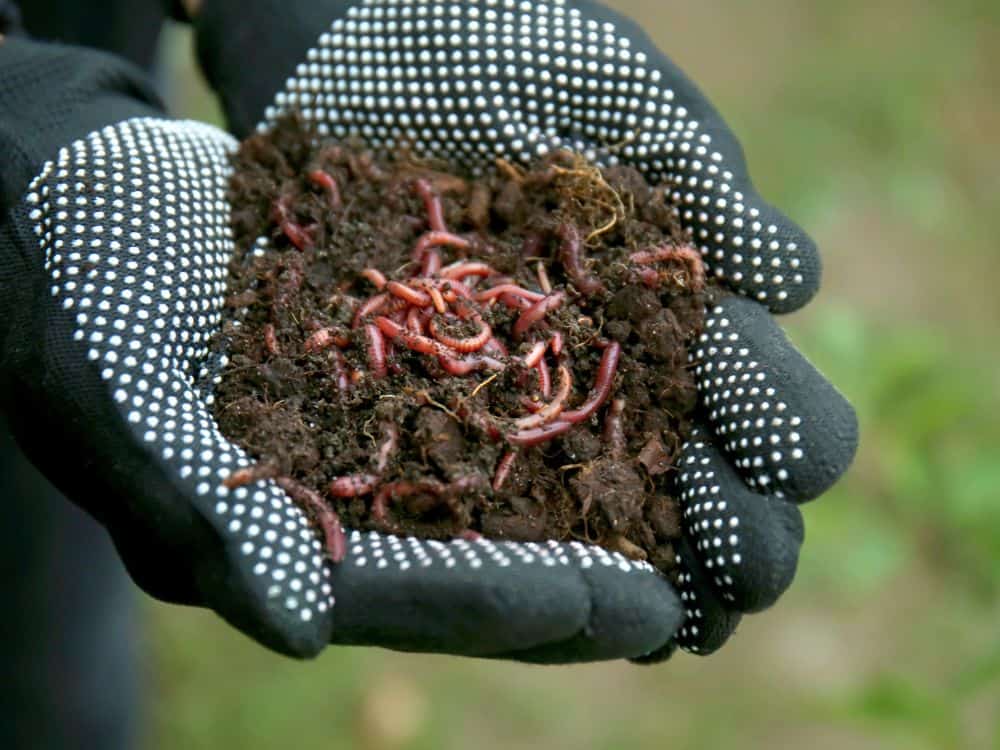
This is one of the most impressive composting facts.
Compost bioremediation can, according to the EPA, be used to “restore contaminated soils, manage stormwater, control odors, and degrade volatile organic compounds” where “agricultural effluents, industrial residues, and industrial accidents” have contaminated surface waters, soils, streams, and reservoirs.
Basically, it can be used to clean up toxic spills!
So what does compost do to amend and remediate such heavily damaged soils?
It changes organic chemicals and binds heavy metals either through biological degradation (in which the microorganisms present in compost break down water-soluble chemicals with enzymes) and absorption (in the case of non-water-soluble materials like metals).
7. Everyone Can Do It!
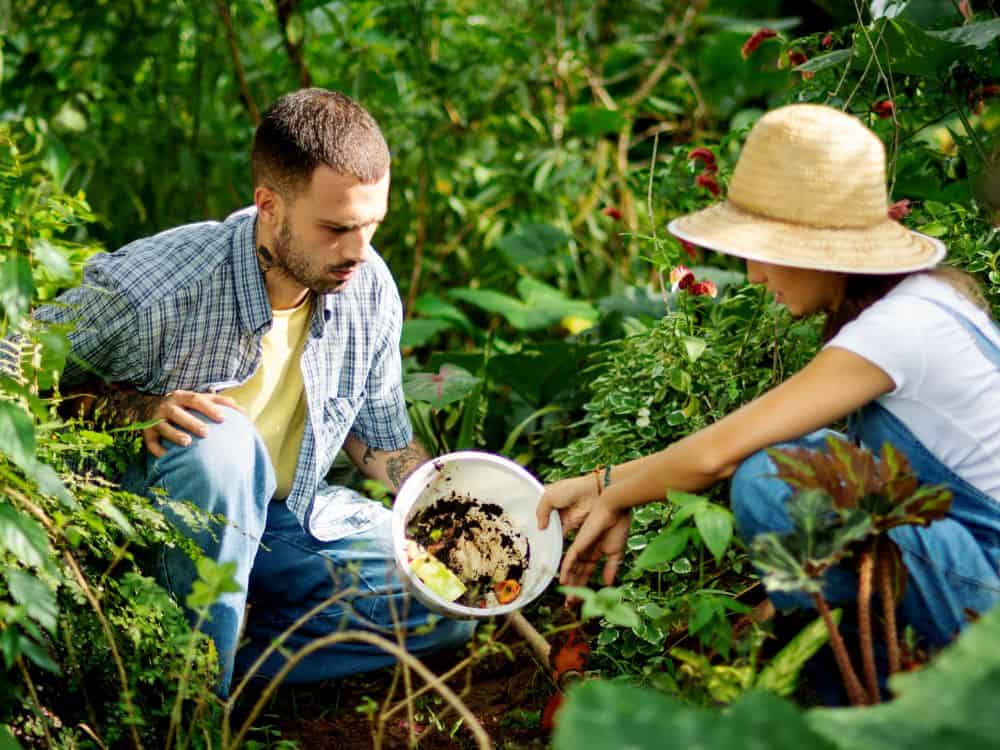
The benefits of composting food waste (and other organic waste) are many, and one of the best things about composting is that anyone can do it, from beginner gardeners to entire municipalities.
Schools, universities, offices, and hospitals can all get in on the action.
Between 2021 and 2023, homes with access to a food waste collection scheme in the U.S. increased by 49% from 10.0 million to 14.9 million.
Things are moving in the right direction.
With a little bit of know-how, composting is straightforward and cost effective, requiring only a receptacle and the waste you’re already producing.
There are different types and methods, depending on what best suits your lifestyle.
Our advice?
Start by learning the basics: what’s compostable versus what’s not compostable, how to do composting in small spaces if you live in a high rise, and what indoor composters are best suited.
In no time, you’ll be researching what worms eat, how to use worm tea, and discovering the benefits of worm composting for yourself.
Did you know we Have a Newsletter?
We cover the latest in sustainable living, fashion, zero waste, beauty, travel, finance and more…
Final Thoughts On The Benefits Of Composting At Home
So, is composting worth it?
No need to hum(us) and haw over the answer: YES!
By helping to create healthy soil, composting is one of the most important things we can support as we work towards a regenerative future.
So if you’re now running to the trash to salvage those precious compost ingredients and join the rotting revolution, our work here is done.
If you know someone willing to roll up their sleeves and get dirty, share this article and help spread the word about the benefits of composting at home.
Don’t forget to keep us (com)posted with your efforts in the comments below.
Pin these:
